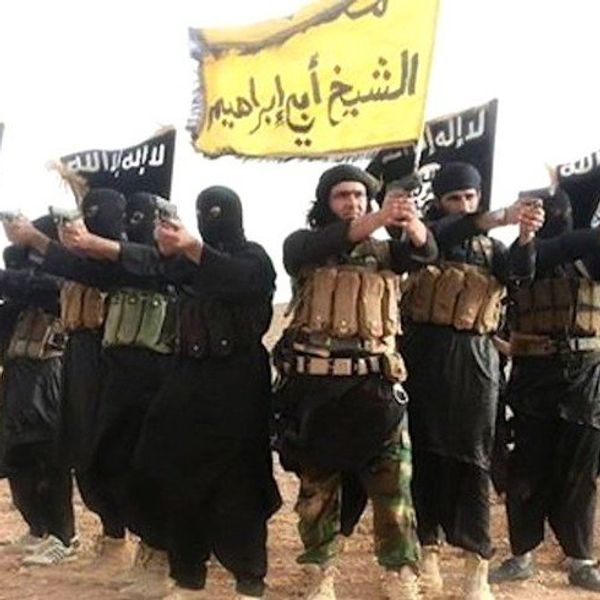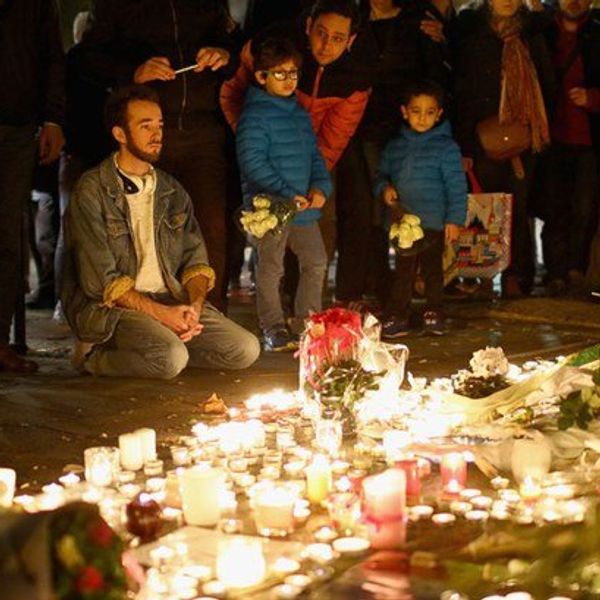Just within the last month, US operations have scored major successes with successful strikes against ISIL general Abu Omar al-Shishani earlier in March and most recently ISIL’s second in command and Finance Minister, Haji Imam. These two men were vital to ISIL’s critical leadership. The successful strikes are part of the Obama administration’s plan of targeting ISIL leadership, which has been an important focus of the administration. Additionally, limiting the size of the supposed caliphate and their access to funding has been given priority. While targeting critical leadership and restricting funding are vital to interrupt and deter the military operations of the supposed caliphate, it is not enough. In order to truly eliminate ISIL, a coalition ground force must be created.
A well-established authority on foreign policy, former presidential candidate and senator, Lindsey Graham (SC), has been a major proponent of creating a coalition ground force. In response to the elimination of Finance Minister, Haji Imam, Senator Graham stated in a press release, “these type [of] operations are necessary to disrupt ISIL but they are no substitute for a sustained ground campaign.” The senator, among others, was calling for a ground force of 20,000 American forces deployed in Iraq and Syria. The American ground forces would be working in conjunction with a coalition of forces from our allied nations, particularly the United States’ Sunni allies in the Middle East. The goal of this coalition would be to eliminate ISIL forces, wherever they may be. This prompted Senator Graham to draft an Authorization for Use of Military Force in order to specifically make ISIL a focus.
While Senator Graham draws his policy ideas from leading experts and military officials, I believe that deploying 20,000 ground forces in the area would do more harm than good. A smaller and more tactical force, in conjunction with our Sunni allies, would be adequate enough to combat ISIL’s military force. The importance of a ground coalition cannot be understated. ISIL has proven their capability at establishing cities that provide infrastructure and governing institutions. Part of ISIL’s potency stems from their potential legitimacy. If ISIL were to become the leading governing figure in Middle Eastern territories, then they win over the support of individuals living within their caliphate, which makes them more than a radical terrorist organization; it makes them a legitimate state. The focuses of a coalition ground force would be to uproot ISIL strongholds while also restricting their communication abilities, as well as their funding. A policy approach that targets military strongholds, such as the supposed caliphate’s capital, Raqqa, as well as restricting the organizations ability to operate would lead to significant strides in eliminating the terrorist organization.
However, more importantly than defeating ISIL militarily, is defeating their radical narrative. The past few months have shown that regardless of the shrinking nature of their consolidated territory, the organization remains effective at recruiting more individuals to their cause, spreading into other nations, and carrying out violent operations. The attacks on Paris that took place on November 23, 2015, showed their capability to carry out operations in Western nations. This attack came just hours after Secretary of State John Kerry stating that ISIL territory had been shrunk by one quarter of its original size. The administration has shown its belief that as ISIL territory continues to dwindle so does its operation ability. However, just months after the devastating Paris attack, ISIL carried out another attack in Brussels, Belgium on March 22, 2016. Similarly, during a press conference, Secretary Kerry continues to boast that ISIL territory and operation ability continues to shrink every day. The administration fails to understand that while the legitimacy of their caliphate dwindles in response to their shrinking territory, their radical narrative remains strong as ever.
We are currently losing the narrative war to ISIL. The terrorist organization has shown a level of technological sophistication never seen before. Their use of different social media sites and dissemination of information has been vital to their recruiting efforts. ISIL social media accounts, as well as ISIL proxy accounts, post and share their radical narrative in a monumental manner. The estimates of social media posts per day vary from 90,000 to as much as 200,000. This greatly outnumbers the amount of counter posts that are written every day. This gross disparity of posts needs to be rectified. In order to effectively delegitimize ISIL’s narrative, we need to release our own counter narrative. This narrative needs to emphasize the lies that ISIL consistently tells, and to educate and empower individuals who are at risk to become mobilized. Unfortunately, this has not been a large priority of many Western nations. However, recently, the United States Department of State and Edventure Partners have created an initiative to provide counter narratives to radical ideologies. This initiative is the Peer to Peer: Challenging Violent Extremism challenge. This initiative challenges a group of 40 international schools to create the best counter narrative operation as possible. The initiative has reached millions of people and has proven successful. While this is a good start, it is not enough.
The United States, as well as other global powers, should continue their focus of targeting ISIL leadership and restricting their operational abilities. In order to achieve these goals it is essential to create a coalition ground force. It is necessary to create this ground force to delegitimize ISIL as a state. Additionally, defeating ISIL is more than just eliminating their military and governing capabilities. In order to effectively defeat ISIL their radical ideology must be defeated as well. Global powers need to put equal importance on counter narrative programs as they do military and intelligence gathering programs. Eliminating ISIL is not as easy as some politicians would lead you believe. It is a complex issue that requires an all-encompassing policy approach that needs to be strategically and rapidly implemented. While it is a difficult goal, it is not unattainable. The United States cannot achieve the defeat of ISIL on their own, it will require a global effort.





















